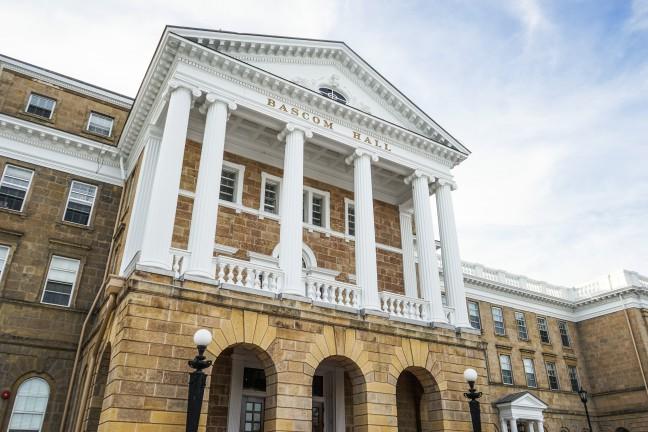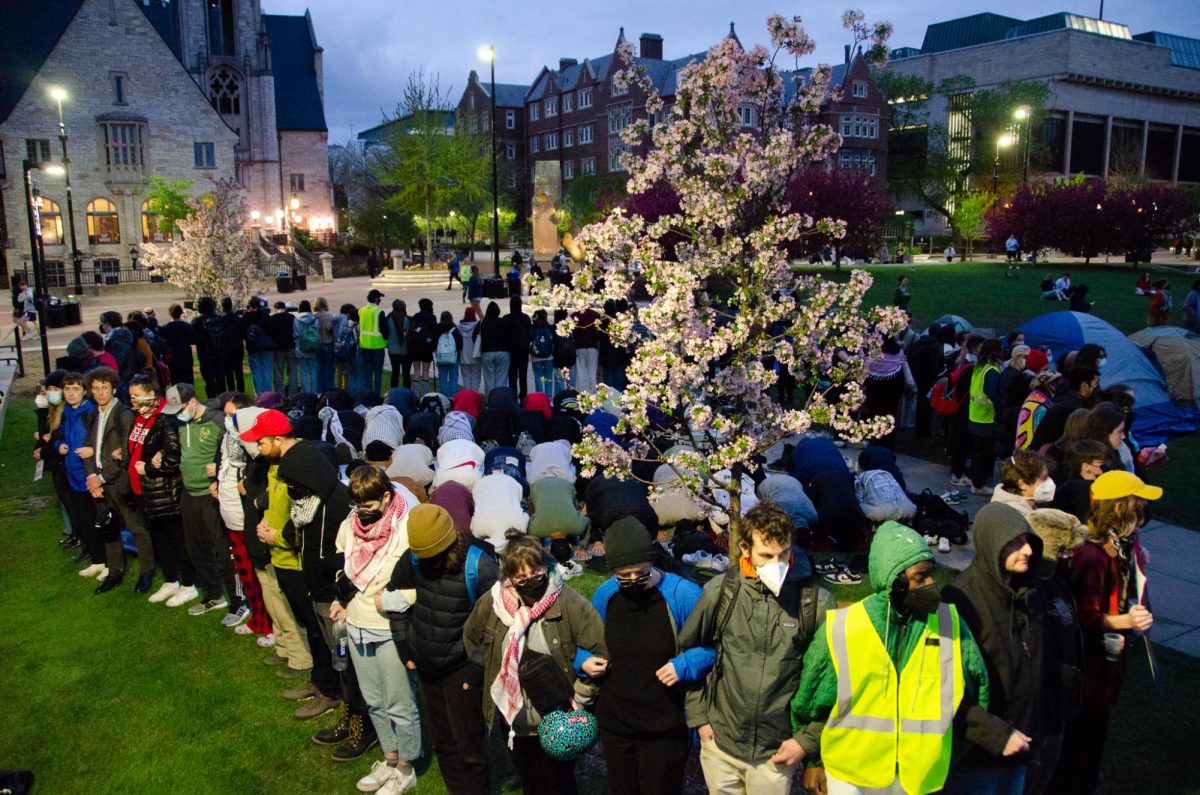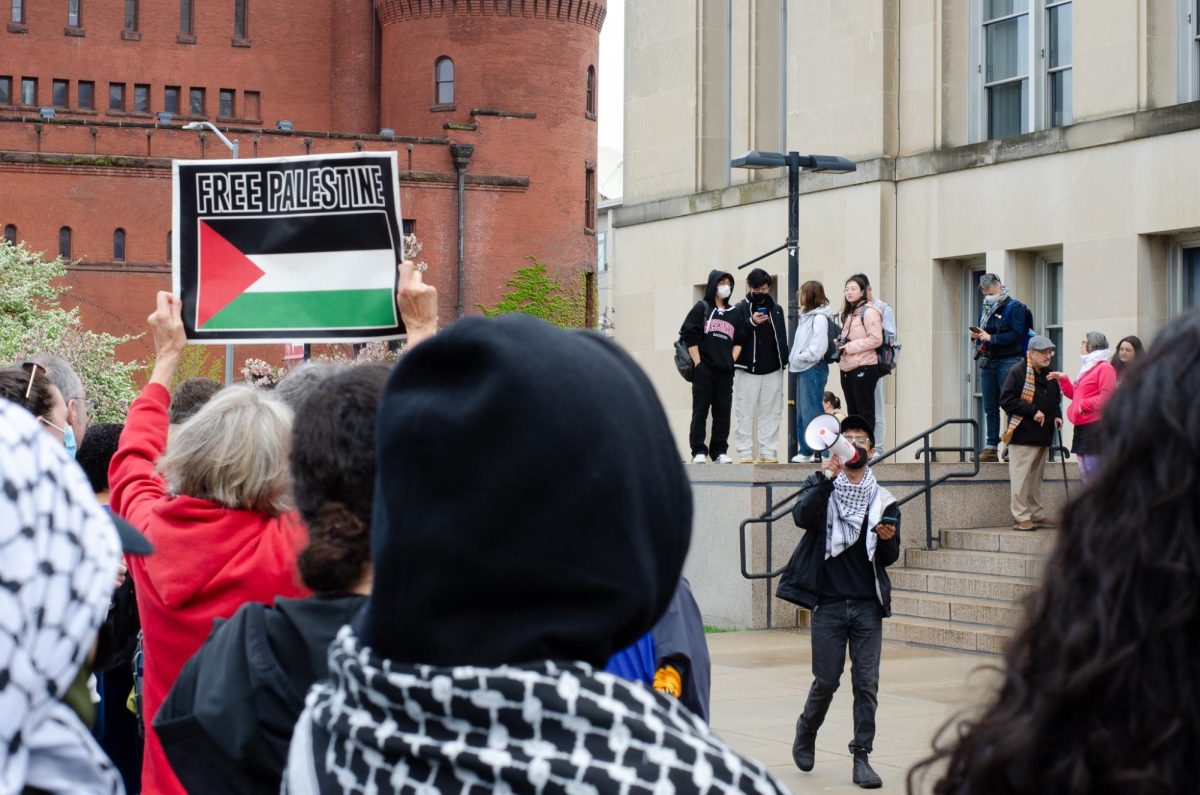Chancellor Rebecca Blank released a statement that highlighted the merit of the University of Wisconsin System as a whole, but also focused on UW-Madison’s position as a land grant university Wednesday in response to the nationwide college admissions scandal.
In early March, an FBI investigation led 50 people — including several actors and prominent public figures — to be charged with federal fraud for allegedly paying millions of dollars to get their kids into elite schools like Stanford, Yale and the University of Southern California, according to the New York Times. Their methods included paying a company to fake standardized test scores and disguise their children as recruitable athletes.
Blank said at UW, all students go through the same admissions process — even student-athletes, who she said are all held to the same standards. She also mentioned that sophisticated fraud can be difficult to detect and that there’s no perfect system to prevent it.
Chancellor Blank pens letter to DeVos amid campus concerns over new gender definitions
“UW–Madison received almost 44,000 applications this year, which is a lot of information to read through,” Blank said. “But we strive to have checks in place to reduce the risk of being victimized by scams and to identify such behavior more quickly when it occurs.”
Blank also said she believes what sets UW apart from other national institutions is its commitment to the students of Wisconsin.
While the ethics of controversial legacy admissions policies are an important discussion to have, Blank said UW still continues to “open doors” for students all over the state, including first-generation and low-income families.
Blank said that equitable admissions policies are intrinsic in UW’s position as a state-affiliated university.
“That was the point of creating state-affiliated public universities — to provide educational opportunities to all students who are ready to attend college,” Blank said.
Blank also acknowledged the trending rise in tuition at public universities nationwide, especially as state funding trends downwards. She said that to maintain a top-tier public university, the burden often falls on students, families and alumni — a burden that can be difficult to bear.
In response to this difficulty, Blank cited the Wisconsin Alumni Association, as well as programs like Bucky’s Tuition Promise that can help ease the stress of tuition for some students. Blank said the amount of UW scholarship money granted has risen from $13.9 million in 2000 to $93.8 million in 2018.
Blank also addressed the legacy controversy by saying that, unlike many private schools, UW is not more likely to admit a student just because their family members went here. This policy even warrants angry letters from parents, she said.
“If you want to get into UW–Madison, you’ll have to rely on your own record, not the record of your parents,” Blank said. “Being the child of a UW alum or being the child of a major UW donor, as grateful as we are for both, doesn’t give you extra credit in the Admissions Office.”
She did, however, acknowledge that certain students reap academic benefits from their socio-economic standing – benefits that are difficult for admissions to equalize. Some students can score better on tests because they have access to prep course, or their school runs more Advanced Placement classes, which enrich their transcripts, Blank said.
To combat that, she said that UW runs programs in Madison and Milwaukee to aid students that may not otherwise attend college with extra resources and help.
As need for mental health services ‘skyrockets,’ university officials look to meet demand
UW’s admissions process attempts to reflect these income gradients, Blank said.
“That’s also why we use a holistic admissions process,” Blank said. “We don’t want to have to build a class based solely on test scores or solely on grade point average, or solely on any one measure. We weigh the opportunities a student had against what they did with those opportunities.”
Blank said that overall, while UW might be great for some students, it may not be the place for others. The UW System as a whole was created to accommodate a variety of career interests, lifestyles, abilities and goals.
UW seeks a “diverse student body,” one that reflects not only gender and ethnicity but background and experience, Blank said.
“Anyone who works in the admissions office of a major university will tell you that admissions decisions are an art and not a science,” Blank said. “We want a class of students who can succeed at UW-Madison, but we know that we may need to provide some additional help to those whose high school preparation might have been a little less strong.”

















